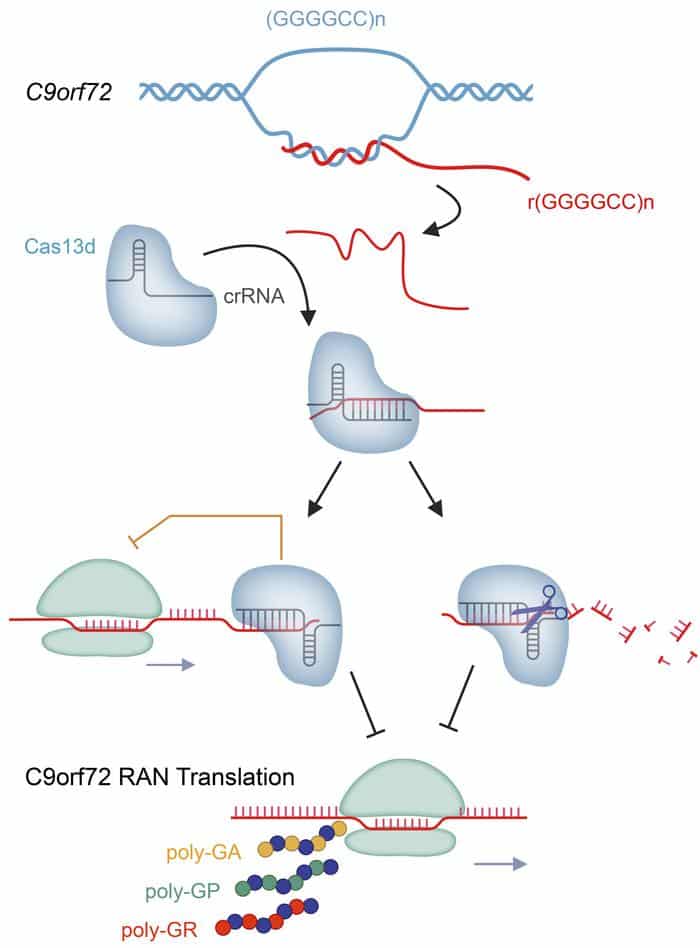


New Research Expands the Toolbox Available to Target C9orf72 Repeats

In a recent paper, published in The Journal of Clinical Investigation, Packard Center investigators and members of the Center’s Scientific Advisory Board, Lindsey Hayes, PhD and Jiou Wang, MD, PhD showed important proof-of-principle experiments that C9orf72 expansions, which exhibits higher-order secondary structures that can be difficult to target, are amenable to genome editing using a newly engineered approach.
Importantly, the new and improved approach demonstrated a positive correlation between the excision of the GGGGCC repeats that are characteristic of C9orf72 expansions, and reduced levels of dipeptide repeat (DPR) proteins. (While the prevailing literature suggests that DPRs may not be a pathogenic driver of disease, they do represent an important biomarker by which to assess the GGGGCC repeat.) This work, funded in part by the Packard Center, expands the toolbox available to target C9orf72 repeats that are causative of a subset of ALS and FTD.
